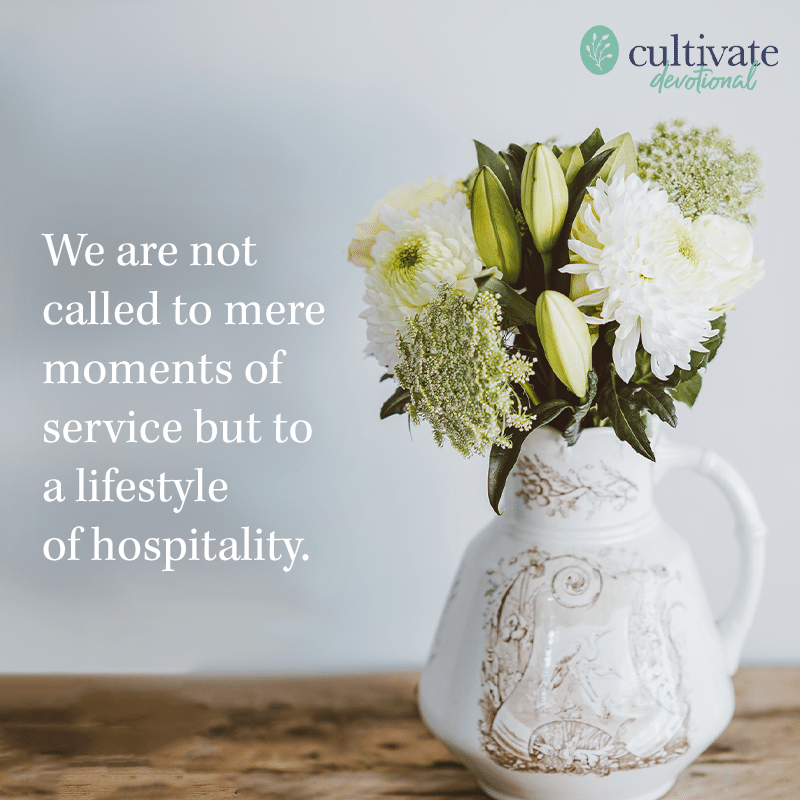
Some Brief Thoughts On Singleness
One of the prayers I have been praying this summer is that the Lord would show me the specific needs of those in our culture. I think I know them but I don’t want to assume. I don’t want to bring only what suits me. I want to offer what the Lord has told me to. Since regularly praying this prayer, I’ve been more attuned to the longings and griefs around me. One of those aches is that of singleness. Emails and DM’s have consistently popped up from women who desperately want to be married, or from mothers burdened for their single daughters.
One of the questions I often get is if I have written a book on singleness or spoken on the topic. The answer is no, but I’m always quick to say that everything I have ever written or taught has passed through the sieve of singleness. Every lonely stretch, the ache for human touch, the decision to live a celibate life outside of marriage, the loss of not being a mother, the desire to be protected and cared for, to feel like a “normal” married person with children at places like church—it all comes out in my writing and speaking, just rarely directly. The unique blessings of singleness also trickle through that sieve.
As with any topic like this one, everyone’s desires and experiences are unique. One person’s singleness will look different than another’s, and each person finds themselves on a different bend in the road. So here are some thoughts on singleness that are not in any way exhaustive, though I pray they are true and encouraging.
Be Honest About Your Pain
First, if you desire to be married be honest about your pain. The longing for companionship, sexual intimacy, a life-long committed relationship, and a family are God-given desires (Gen 1:26-28). Throughout Scripture we see women aching to be loved by their husbands (Gen 29:31), to have children (1 Sam 1:11), to be seen (Gen 16:13). One of the great ironies of the Christian life is when God withholds what He has decreed. And yet we also see throughout Scripture these very ironies playing out over and over again, showing His sufficiency in the lives of those walking through painful paradoxes. (I’ve written Bible studies on the lives of Joseph and Ruth, and many others such as Hannah, Rachel, and Leah compiled in No Other Gods. All of these walked through divine disappointment.)
Sometimes well-meaning people will offer spiritually dressed up platitudes to the single women in their lives because they don’t know what to do with their friends’ singleness. They feel badly that they themselves are married and their friends who want to be are not. They want to fix it and since they can’t they say things like, “Isn’t it great that Jesus can be your husband,” “think of all the things you get to do that married people can’t,” or “look at all your children in the Lord.” There may be some truth to these ideas but when certain blessings are presented as worthy substitutes for being married and/or having children, both the blessings of singleness and marriage are cheapened.
The reality is that the wonderful gifts I have as a single woman are not substitutes for sharing my life with a husband I love or for raising children. They are altogether different blessings for which I am deeply grateful but they are not the same as being married or being a mom. It is not only okay to lament these voids in my life, the Lord delights when I bring Him my pain (Ps 62:8, 1 Sam 1:15). No question, my deepest moments of intimacy with Christ have come when I’ve poured out my soul to Him in loneliness and found Him to be not only present but involved. He has taken me by the hand and led me with cords of kindness (Hos 11:4). So, too, God has not forsaken you in your singleness. He delights when you bring Him your longings in all your confusion, frustration, and sadness.
Take Up Your Cross
Second, I encourage you to take up your cross. This may seem like an uncharitable thing to write to someone struggling in her singleness, but the best way to be single is God’s way. I don’t say this from the cheap seats. Celibacy is not easy but it is a blessed existence because it is an obedient one. And obedience is the fertile soil from which peace flourishes. Some of the most beautiful, accomplished, funny, and Christ loving women I know have not yet found the love of their lives, or if they have, such love has been unrequited because the man is afraid of commitment or can’t get his act together for whatever reason. One of these friends recently told me, “I wish you had met me when I was happy.” She was talking about life before singleness had started to settle in like it was here to stay. I didn’t want to dismiss her pain or try to fix her situation, as many have tried to do for me over the years. At the same time, I wanted her to know that finding happiness is not a fool’s errand for the single woman. There is not only joy to be found in the Lord, there is downright happiness to be had for her (more in the last section about the blessings of singleness).
If you will allow me to temporarily contradict myself, I also told my friend that one of the reasons her singleness is hard is because she’s doing it right. She is not picking up men in bars to numb her pain, she is picking up her cross. She is not drinking her sadness away, she is drinking the cup of Christ. She is following the difficult path of obedience to Him. And she is hoping—sometimes against all hope—that the Lord will sustain her one way or another, whether that’s bringing her a husband and children, or surrounding her with love and friendship in the body of Christ and offering Himself to her in a way that is unique to her circumstances and season of life.
Part of being single means dying to oneself and there’s no way around it. More accurately, being a Christ-follower, period, means dying to oneself—no one gets a pass here whether married, same-sex attracted, divorced, widowed, or single from the beginning. Yet one of Jesus’s most astounding promises is that whoever loses their life will find it (Matt 16:25). I have found this to be true beyond anything I could have dreamt but it hasn’t always been an easy road—there’s the losing your life part that precedes finding it in Christ.
Was it too much to ask to have the love that felt like it came so easily for pretty much the rest of the world? Certain years were agonizing to the point of depression, anxiety, and severe exhaustion. Might I have experienced all these married? Perhaps. But what I have gained through my life as a single woman walking with Jesus is Jesus. If for whatever reasons I wouldn’t have gained Him as a married woman the way I have gained Him as a single one, I would choose over and over again singleness. In the words of Sam Allberry, “If marriage shows us the shape of the Gospel, singleness shows us its sufficiency.”
Remember That Everyone Has It Hard
Third, remember that everyone has it hard in some way. If my twenties was the decade of being in more weddings than I can count, and in as many interesting dresses (the perils of a nineties bridesmaid dress), my thirties was the decade of divorces. I think it’s safe to say that my divorced friends have experienced more gut-wrenching loss and betrayal than anyone else I know. This is to say nothing of the pain that comes from having to split time with the children they share with an ex-husband, sometimes a toxic one. Everyone has it hard in some way.
What about married friends who love the Lord and each other? How hard can that be? I recently discussed singlehood’s loneliness with a dear friend whose marriage I respect. In her North Carolina drawl, and with a loving finger pointed my way, she said “Now let me tell you something.” I could feel her ramping up. “I get lonely with my husband sitting six feet away,” she exclaimed, gesturing toward the leather recliner. She wasn’t patronizing me. She was describing a loneliness that even a loving husband can’t reach.
I have many other close friends in healthy marriages whose children are sick or struggling or estranged. I have friends in healthy marriages whose spouses have gone through cancer. I have friends who once had rock-solid marriages but whose spouses have died. I have friends who, out of love for the Lord, are choosing to stay in difficult marriages. Everyone lives with burdens. I don’t say this to diminish the unique trials of singleness. I say it because all of us need to be reminded that everyone has it hard. Something some of my closest friends and I have said to each other over the years is, “There are worse things than being single.” We’re not wrong.
Don’t Put Your Life On Hold
Fourth, don’t put your life on hold while waiting for a spouse. Jesus came that we might have life and have it in abundance (John 10:10). He spoke these words without caveat. He didn’t bring abundant life only for married people, for mothers with children, for those who haven’t been divorced, for those who go on a lot of dates. If there’s any caveat to Jesus’s promise it’s that all of abundant life is found solely and wholly in Him. Singleness isn’t a consignment to living a half-life, or a sub-par life. It’s not Plan B. You can live fully now. Don’t put your life on hold while you wait for a husband or a family. Be hopeful, be expectant, and be disappointed when it’s the season to be so, but don’t sideline yourself in God’s kingdom. Work while you wait. Move while you hope.
If it would be helpful for you, I wrote a memoir called Wherever The River Runs that details the shocking and unparalleled gift the Lord has given me in the Amazon jungles of Brazil. The story begins with how a heartbreaking and failed music career in Nashville (among other disappointments) led me to a breathtaking and life-long adventure along the banks of the world’s largest river. The Amazon rainforest is often referred to as the lungs of the world because of the oxygen it provides for all of humanity. Little did I know that God would use the people of the Amazon to resuscitate me spiritually. If I’d been waiting for life to work out the way I wanted it to, I can tell you I wouldn’t have been caught dead on a boat twisting through the jungle while eating tambaqui. God gave me the grace to live fully in the state I found myself, and it was that very state of singleness that has allowed me to keep living those unique blessings with a ministry called Justice & Mercy International. But that is part of my story. Yours will look different (for which you might be thanking the Lord at this moment). Just don’t miss it because you’ve put your life on hold for what you’re demanding from Him.
Don’t Miss The Blessings of Singleness
Fifth, don’t miss the blessings of singleness. We’ve already established that nothing replaces a spouse or a family, but the reverse is also true. God’s blessings are unique and we don’t do well when we try to interchange them. Being able to identify and enjoy the blessings of being single doesn’t mean you’re dismissing the challenges or heartache of it. For anyone who has done my Bible studies or interacted with me on social media, you know that being an aunt is one of the richest blessings the Lord has given me. While being an aunt is not the same as being a mother, being a mother is not the same as being an aunt! Mom’s give their children what they need; Aunts give their nieces and nephews what they want (within some realm of reason). My six nieces and nephews are God-given treasures that bring me more joy, laughter, and fingerprints on my glass panes than anything I dreamed before my first niece, Maryn, was born sixteen years ago. Don’t miss the blessings God brings even in the midst of your longing.
I’ve long thought fascinating the portion of Joseph’s story where God shows Him favor and kindness while he’s in prison (Gen 29:20-21). I’ve always wondered why if God was going to go to all the trouble of being kind to Joseph in prison, He didn’t just show him kindness by yanking him out of prison. If God can bless us in singleness while we long for a romantic partner, why doesn’t he just bless us with a spouse? If he can bless us while we hope for children, why doesn’t he just bless us with a child?
I am not in any way comparing singleness—or any other status for that matter—to being in prison. What I find so remarkable is Joseph’s ability to see God’s blessings in the midst of his suffering, his forgottenness, his loneliness. God was with him (Gen 39:21). And it was Joseph’s spiritually keen eyes to discern these blessings that ended up serving as his escape route out of the dungeon and to being second in command over of all of Egypt. If you’re only willing to receive the blessings from the Lord you’re looking for—marriage, children, love, sexual intimacy—your eyes will be closed to the blessings He’s offering you now. Not the least of which is Himself.
A dear friend of mine just texted me this verse: “For the Lord God is a sun and shield; The Lord bestows grace and favor and honor; No good thing will He withhold from those who walk uprightly” (Ps 84:11). Is there a better way to close? No good thing will He withhold from you. Walk uprightly before Him. When you fall, He is faithful to pick you up. He is not looking for perfection (1 Jn 1:8-10), He is looking for your life surrendered (Rom 12:1). Give Him your singleness in holiness, and no good thing will He withhold from you.
*Download the graphic below to share on your socials, and don’t forget to tag us!
Instagram: @kelly_minter
Facebook: @KellyMinterAuthor
Click the button below to open in a new tab, then right-click on the image to download.














